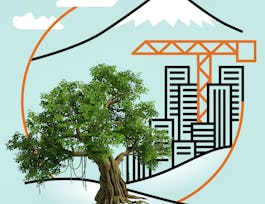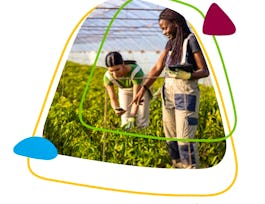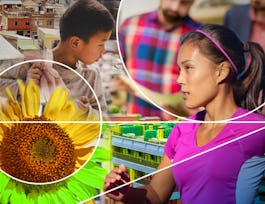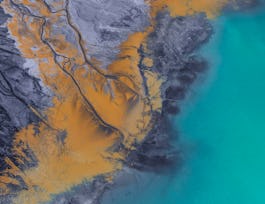In this course, participants are introduced to key notions and concepts evolving in sustainability science that are relevant to all, independent to one's work or field of interest. After having completed the course, participants will have a better understanding of the vocabulary used today and should demonstrate the ability to reflect critically to integrate different perspectives of environmental, social, and economic sustainability to their specific area of interest or research.



Working for a sustainable future: concepts and approaches



Instructors: Mine Islar
Sponsored by InternMart, Inc
7,206 already enrolled
(116 reviews)
Recommended experience
Skills you'll gain
Details to know

Add to your LinkedIn profile
5 assignments
See how employees at top companies are mastering in-demand skills


Earn a career certificate
Add this credential to your LinkedIn profile, resume, or CV
Share it on social media and in your performance review

There are 5 modules in this course
The first module presents essential concepts within sustainability science, and methods used to describe, frame and communicate aspects of sustainability. We look at key questions such as what we mean with strong or weak sustainability, resilience, tipping points and the notion of planetary boundaries. We also look at some techniques used of envisioning alternative futures and transitions pathways.
What's included
9 videos9 readings1 assignment3 plugins
The second module is all about systems thinking and how systemic approaches are applied today to achieve long-term sustainability goals. Your will see what we mean with systems thinking and how systems thinking and design is applied in practice to find new solutions.
What's included
6 videos4 readings1 assignment2 plugins
The third module touches upon drivers for a sustainable future, namely links to economy and businesses with an introduction to notions of a circular economy, and also policy and regulatory frameworks. Your will learn the basics of transformative policy frames and how they are designed and applied through a number of real-case examples.
What's included
11 videos2 readings1 assignment
This module discusses the links between innovation and sustainability, highlighting approaches for technological, social, institutional and financial innovations. Some examples, or cases, aim to show how different actors across society balance in practice the need for innovative approaches for social, environmental and economic sustainability.
What's included
9 videos3 readings1 assignment
The fifth and last module provides general insights on how we work with models to create various scenarios that help us identify solutions and pathways for a more sustainable world. Three main dimensions are addressed namely climate and climate change, nature and biodiversity, and the importance of data and geodata science to support spatial planning and sustainable landuse.
What's included
5 videos3 readings1 assignment
Instructors


Offered by
Why people choose Coursera for their career




Learner reviews
116 reviews
- 5 stars
76.92%
- 4 stars
18.80%
- 3 stars
3.41%
- 2 stars
0%
- 1 star
0.85%
Showing 3 of 116
Reviewed on Dec 21, 2023
Great for beginners. Concepts and terminology well explained. Good reading material with case studies.
Reviewed on Dec 10, 2022
A very systematic course on concept and approaches for sustainable future. I would suggest everyone to pursue this course for better understanding of sustainability.
Reviewed on Jul 7, 2023
Exceptional learning, teaching was too explanatory and comprehensive.
Recommended if you're interested in Physical Science and Engineering

University of Zurich

Arizona State University

University of Copenhagen

Lund University

Open new doors with Coursera Plus
Unlimited access to 10,000+ world-class courses, hands-on projects, and job-ready certificate programs - all included in your subscription
Advance your career with an online degree
Earn a degree from world-class universities - 100% online
Join over 3,400 global companies that choose Coursera for Business
Upskill your employees to excel in the digital economy










